In his unexpected century on Earth, Abram Goldberg has endured the worst of humanity – and embraced its best.
As one of Australia’s oldest Holocaust survivors, he has dedicated much of his long life to warning against the perils of hatred, “never again” becoming the mantra of his adulthood.
“I witnessed the brutality of what anti-Semitism can be,” says Mr Goldberg, 99, an Auschwitz survivor whose entire family, bar his sister, were among the millions murdered by Nazi Germany.
A new wave of anti-Semitism in Australia and overseas after the October 7 attack by Hamas in Israel has deeply disturbed many of the nation’s remaining Holocaust survivors, prompting more than 100 of them, including Mr Goldberg, to publish an unprecedented statement. Calling on Australians to denounce anti-Semitism and hatred, the 102 signatories warn of the consequences of a repeating history.
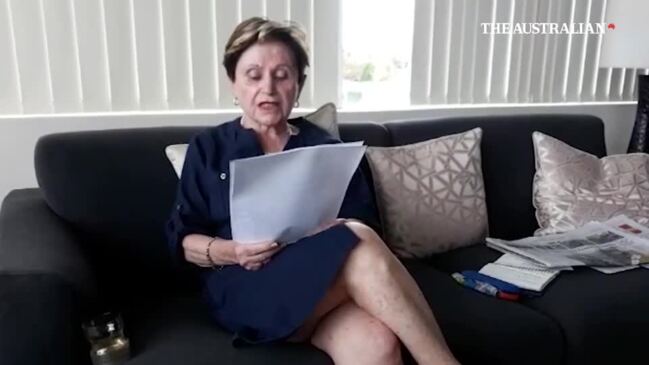
As the last witnesses to the brutalities of Adolf Hitler and his Nazi regime, the elderly survivors write: “We are witnesses to the anti-Semitic propaganda that turned our friends, neighbours and the general public against us in Europe. We remember the six million Jewish lives lost because of this hatred.”
‘I hear hatred on the television. I read it in the press, I can feel it. And it pains me.’
On the 85th anniversary of Kristallnacht, the night of anti-Jewish pogroms deemed the turning point in Nazi plans to annihilate European Jewry, they urge humanity to reject hatred, bigotry and violence, to recognise and condemn the agenda of Hamas, and to call for the immediate release of all its hundreds of hostages.
“Never have we, the survivors of the Holocaust felt the need to make a collective statement such as this until now,” the statement says. “Never did we think that we would witness a re-enactment of the senseless and virulent hatred of Jews that we faced in Europe.
App users, read the statement here
“The actions of Hamas are so familiar, so barbaric, yet instead of condemning this, the response across the globe is a shameful spike in anti-Semitism.”
They stress their learned experience of the values of resilience, unity and hope, and the power of remembrance and education – many signatories are volunteers at Holocaust museums around the country – to prevent a recurrence of past atrocities. “We ask all Australians to denounce the anti-Semitism and hatred that we see today in our beautiful country and across the globe. We ask you to stand with us,” they say.
Mr Goldberg, who found a haven in distant Australia after World War II, has lived in Melbourne since 1951 and for the past 40 years, through the city’s Holocaust museum, he has told tens of thousands of people about his devastating past, the importance of speaking up and the value of hope.
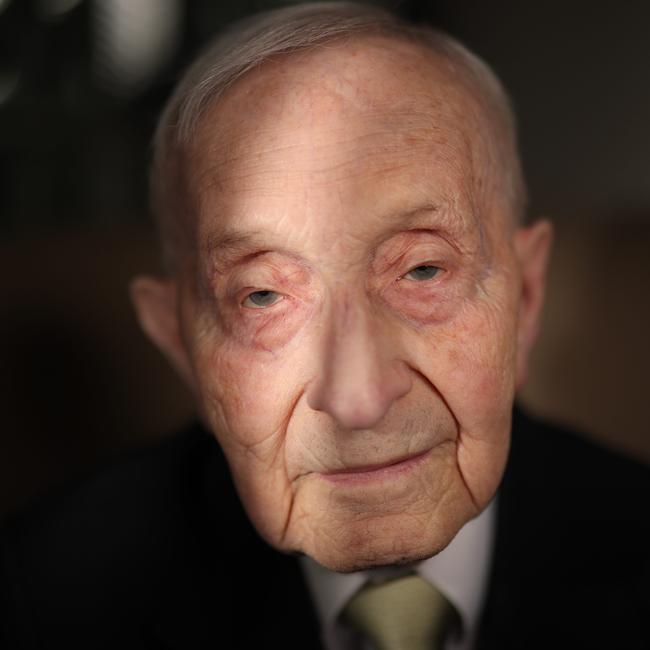
Hamas’s attacks on Israel a month ago rekindled his wartime nightmares, with details of murdered babies and mothers mirroring his own wartime experiences. “You can imagine,” he says quietly, “it all came back. I never expected all this to be happening in our wonderful country: the demonstrations, the anti-Semitism and racism. I hear hatred on the television. I read it in the press, I can feel it. And it pains me. My children were born here and I have been here for 80 years. I saw a better Australia than I see now.”
From demonstrators chanting “F..k the Jews” to the pasting of Hitler posters, hate-filled sermons and brazen calls across social media for Jews to be gassed, the furious and unrivalled wave of anti-Semitism in Australia of recent weeks was “history repeating itself”.
Queensland Holocaust Museum chairman Jason Steinberg – whose organisation is part of the Australian Holocaust Museum Alliance which instigated the statement – said: “That’s why the survivors are so passionate, because they have been educating Australians for decades to protect society against this.”
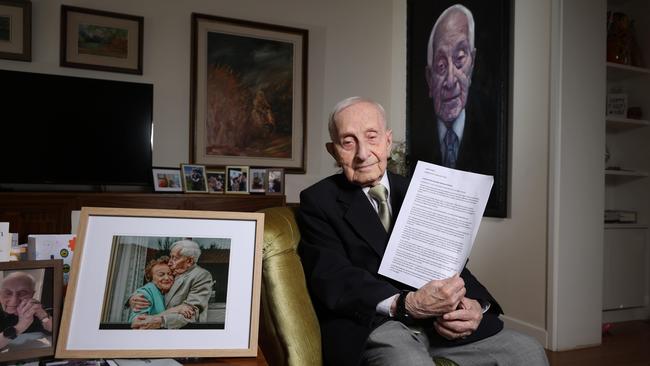
For 84-year-old Nina Bassat, adding her name to the statement was imperative. “It’s the total absence of moral fibre that’s coming through in this. There’s no logic. It’s just ‘we hate Jews’,” said Mrs Bassat, a child survivor, who unlike some signatories, has not become fearful over the past month, as a result of the swell in anti-Semitism, of being identified publicly.
“I don’t want to live in a country where I can’t have my full name published.” Ms Bassat endured 18 months as a toddler in a Jewish ghetto in Poland before she and her widowed mother, having been miraculously saved on their way to a concentration camp, were harboured by a Ukrainian woman until liberation.
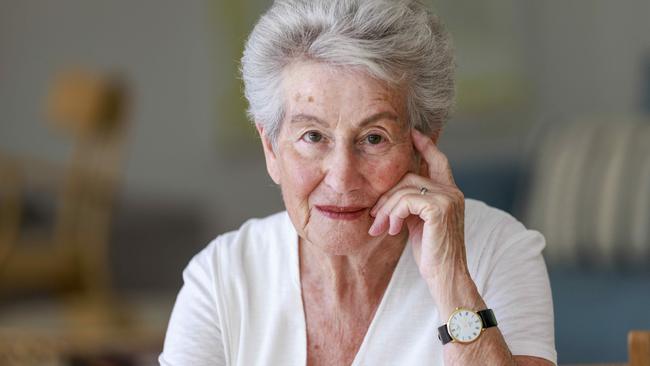
As a former president of the Executive Council of Australian Jewry, Mrs Bassat has long been aware of the existence of local anti-Semitism. But only now has she been shocked by its breadth, compelling her to add her name to the letter. “It hurts me,” she said. “We were given a haven here. We just wanted to get as far away from Europe as we could. And it has been a wonderful country … I did not think in Australia I would ever hear the words ‘kill the Jews’.
“Australia is one of the last bastions of civility, of living multiculturally in a much more friendly environment, and this is now being put at risk.
“I’m frightened for our society. Hatred is insidious and contagious and you don’t know where it will manifest itself.
“It’s not a Jewish issue. I wish people would understand that anti-Semitism starts with Jewish people. But the hate then translates to any group that is perceived as being the other; in the Holocaust that was the Romani, homosexuals, people with disabilities.
“Any group that you feel doesn’t measure up to your requirements then becomes the victim.”
EDITOR’S NOTE: This report has been edited to clarify that the ghetto where Ms Bassat lived as a toddler was established by the Nazi regime, not by Poland.

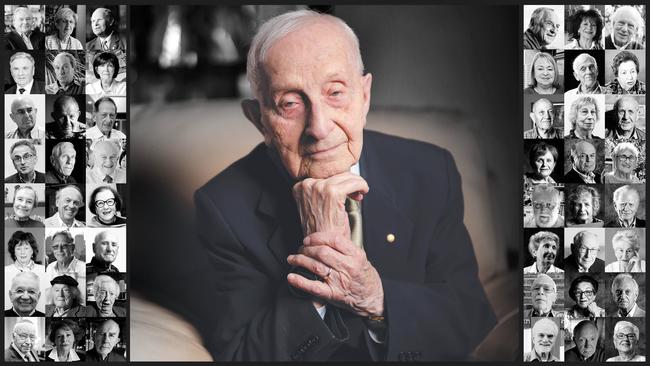

More Coverage
Add your comment to this story
To join the conversation, please log in. Don't have an account? Register
Join the conversation, you are commenting as Logout